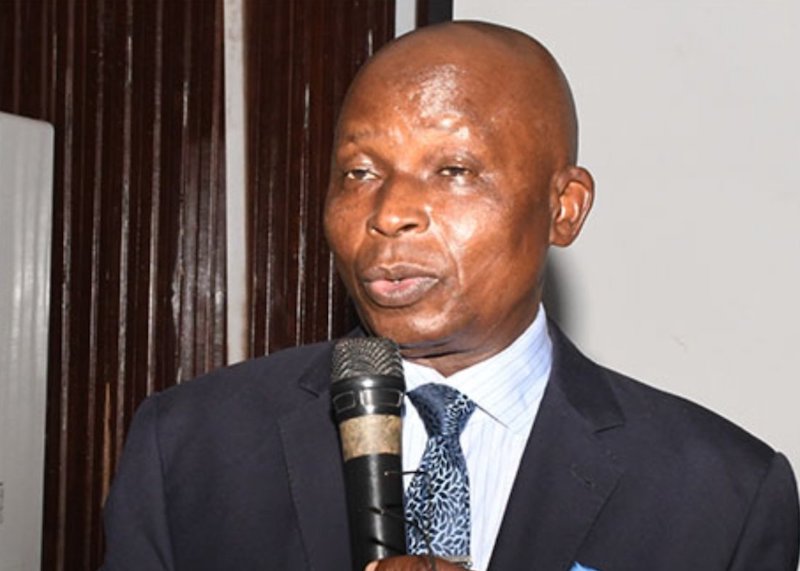Mrs Ladidi Bako-Aiyegbusi, a Director at the Federal Ministry of Health, says the Revised National Health Promotion Policy (2019) and Ancillary Strategy Policy Documents will empower Nigerians toward healthy living.
Bako-Aiyegbusi, who heads the Health Promotion division at the ministry, said this in an interview with the News Agency of Nigeria (NAN) on Tuesday in Abuja.
The Minister of Health, Dr Osagie Ehanire, had on Monday, launched the policy with other ancillary documents- the National Strategic Plan for Health Promotion 2020-2024 and Counselling Flip Chart on Key Household Practices.
Others are Knowledge Management Guideline for Health Promotion (2020-2024) and the Counselling Flip Chart on Family Planning/Child Birth Spacing.
According to Bako-Aiyegbusi, the National Health Promotion Policy gives overarching directive to all organisations and individuals that are working in the area of health communication.
She said the revised National Health Promotion Policy was aimed at facilitating health promotion interventions that would ensure and sustain healthy behaviour.
The director said the policy would facilitate and contribute to healthy lifestyle, and an enabling environment, including healthy public policy toward empowering Nigerians to make informed choices.
Bako-Aiyegbus urged Nigerians to make healthy choices daily on the type of food they eat and go to the health facility for regular medical checkup.
“Health choice involves doing simple things every day that will keep the body healthy, reduce the chances of developing many diseases, that could be prevented, give individuals an opportunity to live a longer, happier and healthier life.
“To start eating healthy foods early in life, to keep the body working at its best throughout lifetime by ensuring each diet includes fruits and vegetables,’’ she said.
According to her, there are lots of benefits for individuals and nations on choosing healthy life style daily.
“To Individuals; it decreases the risk of disease and injury, improves quality of life, increases life expectancy and reduces money spent on treatment of diseases.
“For nations; it reduces levels of illness, disease and injury, it reduces crime levels and increases uptakes in vaccination and screening programmes.
“It also reduces financial cost to the National Health System and the government, increases manpower output by reducing absenteeism due to ill health.’’
The director emphasised that when carefully examined, a significant percentage of the factors that characterised healthy living might be found outside health facilities and case management.
“Beside accidents, infections and genetic make-up, a wide range of lifestyle, social, economic and environmental factors may affect personal and indeed population health.
“These are factors that influence one’s health status essentially because of how and where a person: lives, works, or interacts with others,’’ she said.
According to her, the health of an individual is not only impacted by the quality of health services, but also by nutrition, cultural norms, health literacy and education.
“ It also affected by gender issues, family status, type of accommodation, access to clean water and access to basic sanitation as well as security issues.’’
Bako-Aiyegbusi said if the Federal Ministry of Health must fulfil its mandate of providing quality stewardship and services for the health of all Nigerians, then, the perspective of the meaning of ‘services’ must assume a more holistic scope.
“Our services must include: collaborating with a wide range of sectors strategically positioned and equipped to address these social determinants.
“It also means that we must strengthen our capacity to drive health literacy and encourage personal responsibility for healthy choices.
“It is for this reason that this deliberate effort to reposition health promotion is timely and strategic by developing the National Health Promotion Policy.
“ Health Promotion is the process of enabling people to increase control over their health and its determinant, thereby improve their health.
“It moves beyond a focus on individual behaviour towards a wide range of social and environmental interventions,’’ she said.
In addition, the director said the National Health Promotion Policy would give all organisations and individuals working in the area of health communication directive.
“It will give them directive on how to carry out health communication activities, using standards guidelines that are in line with global health promotion practices.
“ The policy gives directive on the structure for health promotion practices at the Federal level, at the state level and at the local government level including the community.
“It also talks about the health issues which cut across health sector; it talks about coordination structure that needs to be put in place for effective coordination of promotion activities at all levels.’’
The director said the maiden policy was developed in 2016 and in 2017 was revised, the process started in 2017 and ended 2019.
“The policy has been in public domain. The plan was to launch it earlier this year but due to COVID-19 pandemic it was put on hold. But it has been launched now,’’ she said (NAN)




